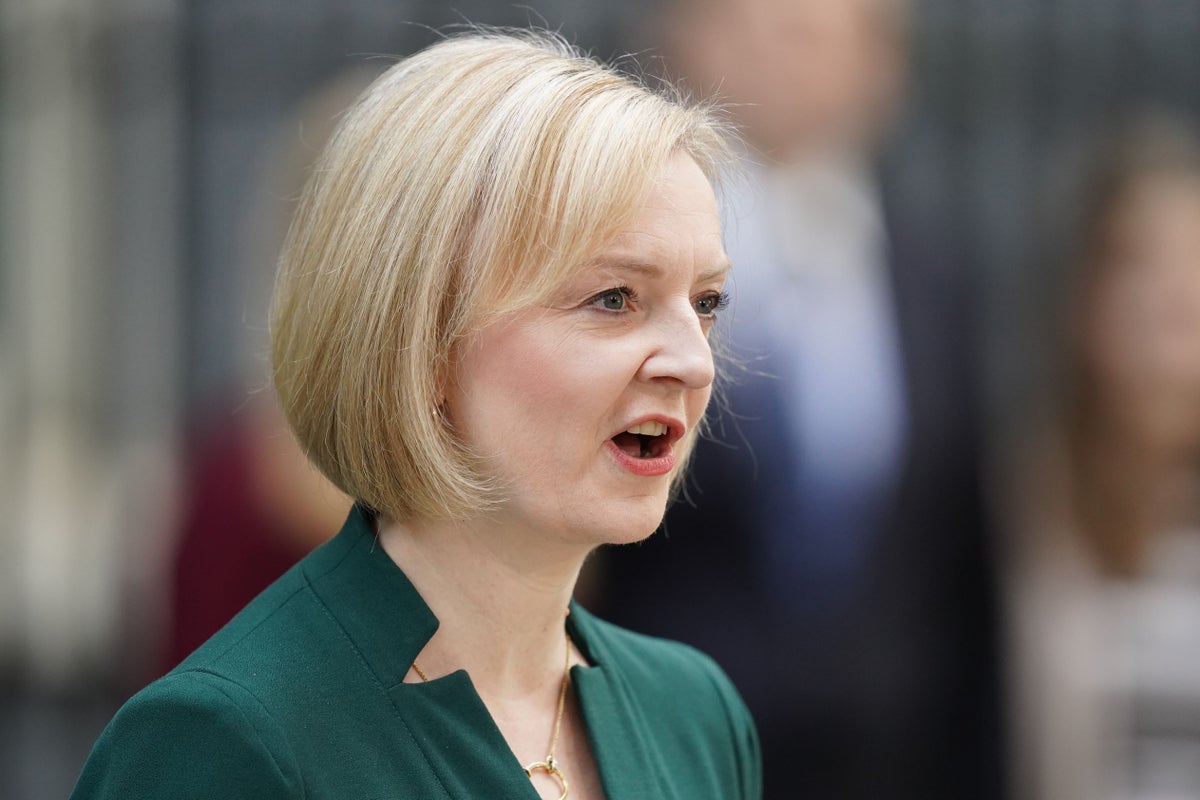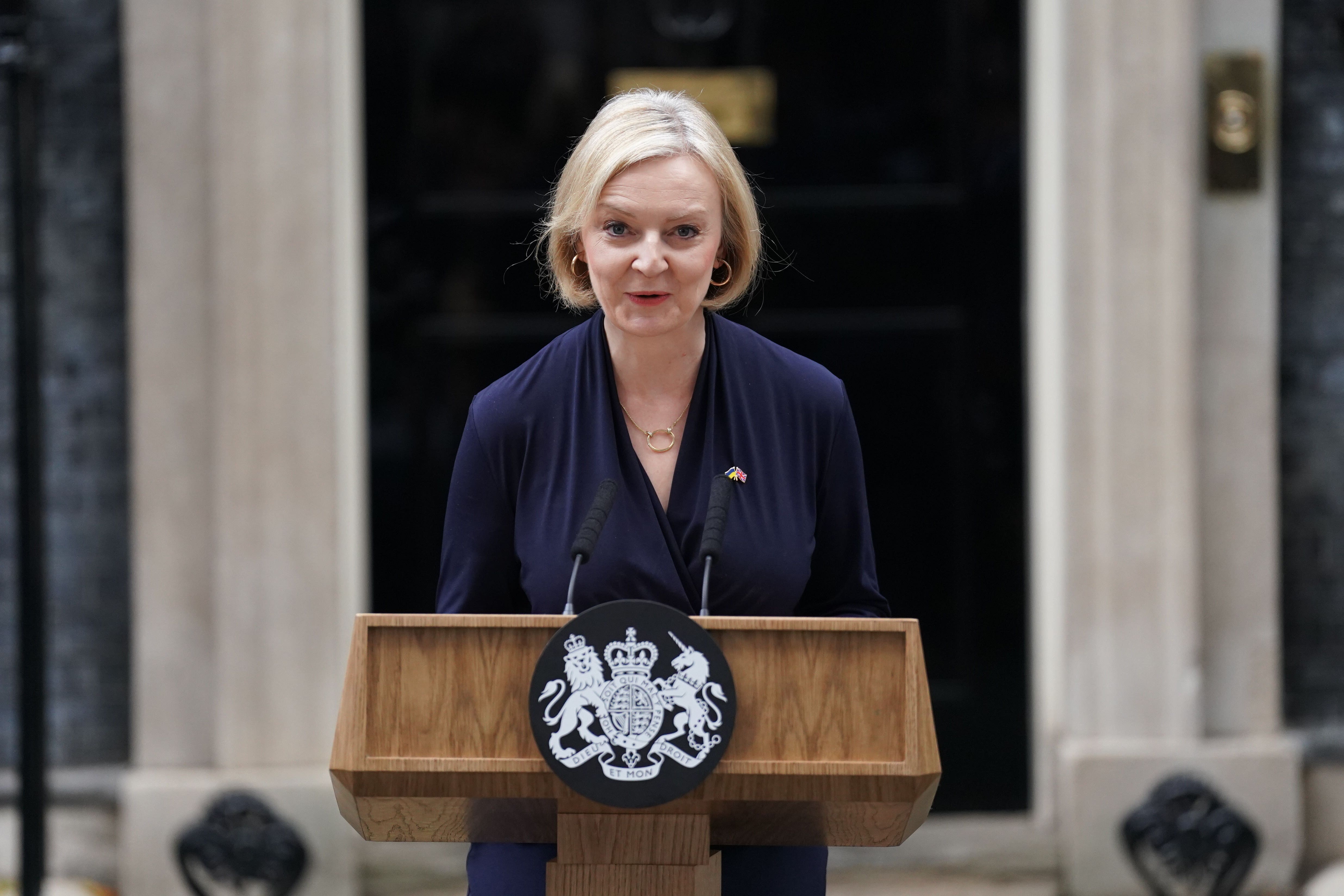
Liz Truss “clearly” took the wrong approach to the economy, business secretary Grant Shapps has said after she blamed the “economic establishment” and her own party for her downfall.
In a 4,000-word essay, the former Tory prime minister insisted her radical plan to cut tax and borrow more was the right one – taking a swipe at successor Rishi Sunak over tax rises.
Ms Truss’s disastrous premiership lasted just 49 days, when she was forced to quit after her chancellor Kwasi Kwarteng’s £45bn package of unfunded tax cuts panicked the markets and tanked the pound.
Mr Shapps said Mr Truss’s big mistake was to try to push ahead with tax cuts before bringing inflation under control.
Asked if Ms Truss had the right approach right, the business secretary told BBC Sunday with Laura Kuenssberg: “Clearly it wasn’t … I agree with the desire to have a low tax economy, but you have to put the building blocks in place.”
Mr Shapps added: “She is right about the need for long-term low tax, but it rubs against the reality of two or three years of Covid … followed by a war and the enormous costs and pressure on energy and inflation.”
Labour said the public would be angry that Ms Truss had offered “no humility” for helping drive the economy “off a cliff” in the autumn.
Senior Tory MPs Alicia Kearns mocked Ms Truss’s attempt to rewrite her time in office, saying “recollections do vary”. She told Sky News: “Fundamentally the markets aren’t left wing, they are not woke.”
Ms Kearns, chair of the foreign affairs select committee, added: “Unfunded promises are not tenable. Ultimately, what ended her premiership was her inability to manage the party … That is why MPs no longer had trust in Liz Truss anymore.”
Tory MP Richard Graham, one of Mr Sunak’s trade envoys, also said it was a “mistake” for Ms Truss to make the case that she had “the right ideas”.
He told Times Radio: “I think, for most people in the country, that was a period that they would rather, not really remember too clearly – and let’s get on with sorting out the problems in people’s day-to-day lives.”
Tory peer Lord Barwell, Theresa May’s chief of staff at No 10, was scathing about Ms Truss’s explanation for the failure of her premiership.
“You were brought down because in a matter of weeks you lost the confidence of the financial markets, the electorate and your own MPs,” he tweeted. “During a profound cost of living crisis, you thought it was a priority to cut tax for the richest people in the country.”
However, ex-Tory chair Sir Jake Berry, in cabinet during Ms Truss’ brief premiership, defended the former PM – saying he agreed with the “diagnosis of the disease” of low economic growth.
“I think she accepts ... the prescription that we wrote, for which I take part of the blame, wasn’t delivered in the right way. I agree with the diagnosis, not necessarily the cure.”
Writing in the Sunday Telegraph, Ms Truss said: “I am not claiming to be blameless in what happened, but fundamentally I was not given a realistic chance to enact my policies by a very powerful economic establishment, coupled with a lack of political support.”

“I assumed upon entering Downing Street that my mandate would be respected and accepted,” she continued. “How wrong I was. While I anticipated resistance to my programme from the system, I underestimated the extent of it.”
Attacking some in the Tory party, the ex-PM added: “Similarly, I underestimated the resistance inside the Conservative parliamentary party to move to a lower-tax, less-regulated economy.”
Ms Truss said that while her experience last autumn was “bruising for me personally”, she believed that over the medium term her policies would have increased growth and therefore brought down debt.
She complained that the government was made a “scapegoat” for developments that had been brewing for some time, and said her plan broke with the “left-wards” drift of economic thinking.
While not mentioning Mr Sunak by name, she also takes a swipe at her successor and his increase of corporation tax from 19 per cent to 25 per cent, branding his policy “economically detrimental”.
Labour’s shadow care minister Liz Kendall said: “Less than 20 weeks since the Conservatives drove the economy off a cliff, Liz Truss is back with no apology and no humility.”
She added: “People whose mortgages rocketed and pensions plummeted will look on with at best shock and at worst anger. And the problem for Rishi Sunak is he can’t control any of this because many people in the Tory party still agree with this.”
Labour peer Lord Falconer said Ms Truss was still a “powerful voice” in the Tory party, adding: “If she represents a powerful force, are we going to have deluded Trussonomics again as informing the way this government, the Sunak government, runs the economy?”
The Liberal Democrats also criticised Ms Truss’s comments about her “disastrous reign” and called for the removal of her £115,000 a year publicly funded allowance to pay for her staffing costs.
“Allowing Truss to pocket this cash while the British public continue to suffer the consequences of her botched mini-budget, with spiralling bills, mortgage rates and inflation is a slap in the face,” said deeputy leader Daisy Cooper.







